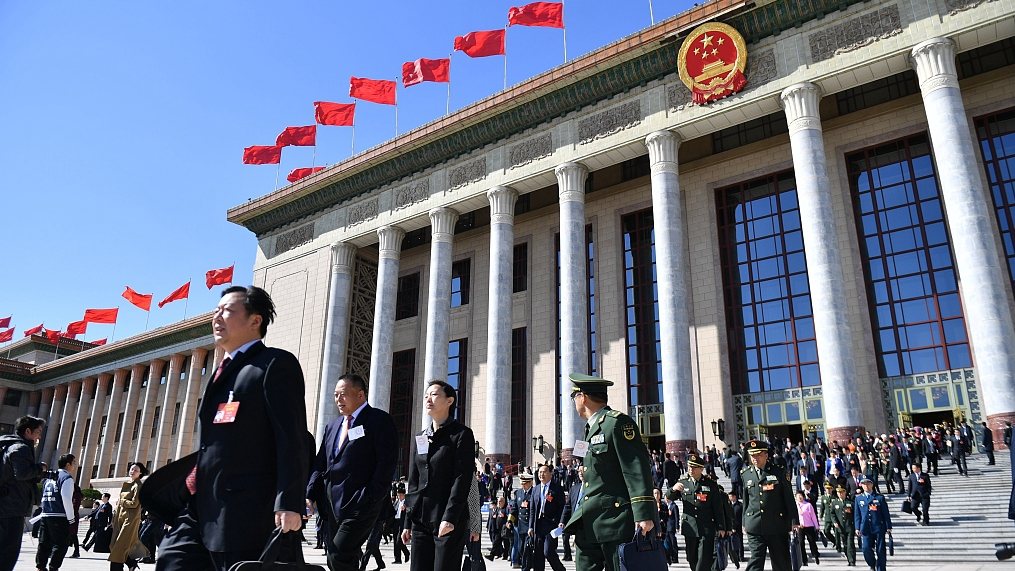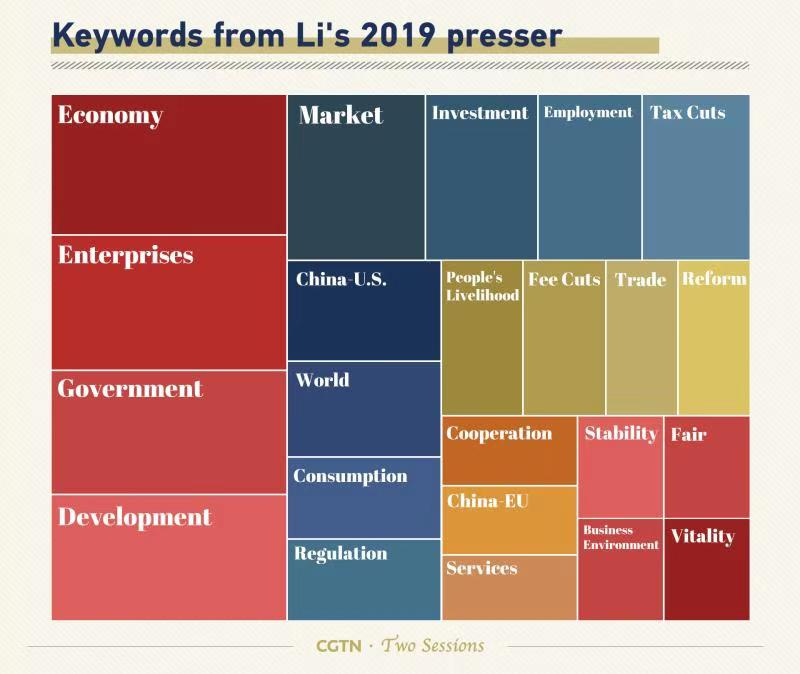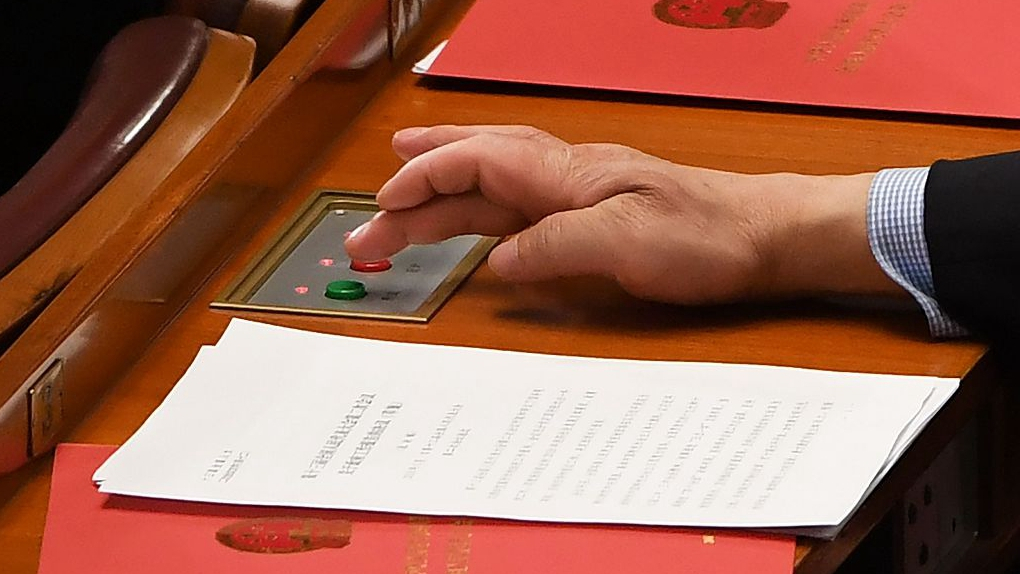
Domestic
23:27, 15-Mar-2019
Open for business: China's Two Sessions message
By John Goodrich

Political messaging is a universal reality and, in its way, an art.
Around the world there are different systems, different considerations, and different politicians. But effective politics anywhere requires persuasion through communication, and communication is a two-way street.
Behind the messaging there has to be an argument and a strategy that shows leadership but is formulated through consultation. And to cut through, a message often needs to be repeated and repeated.
So as the curtain fell on the Two Sessions on Friday, what was China's message?
Economic focus
A look at the most-used keywords during Premier Li Keqiang's closing press conference gives a pretty clear guide: Economic matters were center stage.
Action to maintain stable growth sat alongside a healthy dose of realism about the internal and external economic risks, while measures designed to improve the business environment for domestic and foreign companies alike were returned to over and over again.
Premier Li acknowledged, both in his closing press conference and the government work report 10 days earlier, that China's economy was growing more slowly and that headwinds global and domestic were swirling.

He stressed that giving vitality to the market was the best long term way to counter economic challenges, adding that there "must be no lip service" and the market must test the policies.
Tax cuts were the flagship policy to fire the economy. Li described them as the "most important and crucial step in handling the pressures of economic downturn."
Major reductions in VAT for manufacturers and support for the micro-, small- and medium-sized businesses that drive economies were a centerpiece, at a time when growth in industrial output has slowed.
And promised income tax cuts should boost China's consumer economy: In January and February, retail sales climbed by 8.2 percent, according to the National Bureau of Statistics.
Li assured that the tax burden would drop for companies, and that measures would be taken to improve the private business environment by continuing to deepen and broaden the process of reform and opening-up through market-orientated changes.
Listening
A vital part of the Two Sessions is the opportunity for ideas and experiences to be shared, and for those consultations to inform policy.
The political process in China isn't always easy to understand from the outside, but at this year's Two Sessions there was a greater sense of transparency: Not only the press conferences or "corridors," but a real discussion about issues like the Foreign Investment Law.
In Friday's press conference, it was notable how many times Li said, in essence, "I'm listening."

A delegate votes during the closing session of the National People's Congress in Beijing's Great Hall of the People, March 15, 2019. /VCG Photo
A delegate votes during the closing session of the National People's Congress in Beijing's Great Hall of the People, March 15, 2019. /VCG Photo
The premier said that while China's business environment had improved, "We are still falling short," and repeatedly cited consultations with Chinese People's Political Consultative Conference members and National People's Congress delegates, as well as local business owners, as having informed policies.
"We must listen to market players and help them release their vitality," the premier said at one point. On business licenses he said he had heard complaints and the government was taking action.
Later, Li recalled meeting a migrant worker on a construction site and the worker telling him of his desire to send his child to university as the premier addressed how the rights of migrant workers should be guaranteed.
Signals
Listening extended to the Foreign Investment Law, the most eagerly-watched feature of the Two Sessions, which will come into force on January 1, 2020.
The law sets out China's intention to level the playing field for foreign companies, a plan designed to reassure overseas firms as well as boost the domestic economy.
The passing of the law was a clear signal that China is listening to the concerns of overseas investors and responding in a way that looks to reassure while fitting the country's economic model.
Some of the specifics of the law are still to be spelled out, but it is a powerful summation that bottles a larger message: China is committed to opening up its markets, and also to playing a bigger role in an integrated global economy.

SITEMAP
Copyright © 2018 CGTN. Beijing ICP prepared NO.16065310-3
Copyright © 2018 CGTN. Beijing ICP prepared NO.16065310-3